
Video Game Fables – Review
Are there any gamers out there that don’t have a backlog? We’ve lamented our very own battle against the backlog a couple of times on this very website, as it is often difficult to keep up with the steady flow of new video games. It’s a first-world problem for sure, and we’re actively going out of our way to make it even worse, as we continue to bring you our unabashed reviews, giving you recommendations for what to add next to that ever-growing library of unfinished -or even unstarted- games. Case in point: Video Game Fables, an indie RPG that actually launched in September of 2022. That’s right, this game was released nearly eighteen months ago. So, why are we only spotlighting Video Game Fables now? Well, frankly, because this one deserves the attention. It’s a hidden gem that almost slipped through the cracks, but with this late review, we’re giving it a chance to shine after all.
Story
As the title already indicates, Video Game Fables is a game about video games. More specifically, Video Game Fables’ story pokes fun at the all too familiar RPG tropes that we’ve come to know and love, and it subverts your expectations in a witty and lighthearted manner. Central to the story is Aru, a princess who is destined to fulfill the role of damsel-in-distress. It’s all part of the video game script: Aru is to be kidnapped and imprisoned by the evil ̶B̶o̶w̶s̶e̶r̶ Lord Gator and then rescued by the game’s Hero. However, our princess is self-aware and decides not to roll with the script. Instead, she teams up with a convenient passer-by, a villager named Nate, and manages to free herself from Lord Gator’s clutches. This isn’t to the liking of the Hero, who was looking forward to his quest. Teaming up with the previous video game princess, who is now a witch, the Hero takes both Lord Gator and Aru’s father hostage. It’s now up to Aru, Nate and Lord Gator’s son, ̶B̶o̶w̶s̶e̶r̶ ̶J̶r̶.̶ Tator, to rectify the situation.
Flipping the script around and making the princess the protagonist isn’t exactly a new or original idea, but the excellent writing, meta-humor, and absurd situations that our unlikely trio find themselves in make for a story that is as memorable as it is enjoyable. It would have been easy for developer Momiji Studios to simply push things too far when it came to deconstructing video games, but it’s clear that this is a loving parody. The cast is fleshed out and likable, and the story is the main driving factor to get players to sit this one through to the end. There were times when we felt Video Game Fables could’ve driven their point further, but this would negatively affect gameplay. It’s funny that Aru points out flaws in video game logic, but she still actively participates in the world rather than ignoring certain elements altogether.
Graphics
While Video Game Fables doesn’t necessarily boast the most impressive visuals, this makes sense given the game’s context. Video Game Fables is set inside the world of an NES-era RPG after all. As such, the character designs resemble simple pixel sprites, although they are rendered as 3D models and are placed in simplistic 3D environments. Enemy models are a mix of the same style of pixel sprites and simple 3D models. Video Game Fables isn’t a very pretty game, but the art design used here simply works for the setting.
Sound
Given the retro aesthetics, it probably shouldn’t come as a surprise that Video Game Fables eschews voice acting entirely, although this did seem like a missed opportunity. Fortunately, the game’s soundtrack makes up for this, with catchy battle tunes, especially when facing bosses. The overworld music isn’t any less memorable, serving up soothing tracks when visiting settlements and chipper audio when exploring the wilds.
Gameplay
Initially, Video Game Fables presents itself as a standard retro RPG, complete with a massive overworld to explore, and hordes of generic enemies waiting to take on Aru and her friends in turn-based battles and puzzle-filled dungeons. It all feels fairly standard until you get to the very first boss encounter and you realize that, just like with its story, Video Game Fables loves to mess around with the conventions of the genre and go off-script. For the most part, the game sticks to those early gameplay foundations, but there are twists and turns to a formula that mostly seems familiar, resulting in a game that constantly surprises and never gets boring. It’s not quite the genre-hopping rollercoaster that the No More Heroes series serves up, but… ah, but that would be spoiling things. Perhaps simply explaining the absurdity of that aforementioned boss encounter gives you an idea of what to expect here: the first boss in the game is a literal chair, who became a dungeon boss because of a typo. And he sits on a bigger chair. We told you that Video Game Fables isn’t a conventional RPG.
The turn-based battles are built around a rather unique and interesting system. As is typically the case in RPGs, you have normal attacks and special abilities, but where Video Game Fables differentiates itself is through its crit system. In other games, getting a critical hit, or crit for short, simply means you deal more damage. Here, you activate your special abilities when you land a crit. This effectively replaces MP, and there are several ways that allow you to boost your crit rate. There are layers to the system, all neatly woven together, ensuring that things remain balanced. Abilities aren’t simply gained by leveling up: you’ll need to gather resources in order to craft them and gain enough experience points with your party to unlock ability slots for individual characters. That may make it sound like you need to jump through a lot of hoops before you’re able to pull off one of these attacks, but in practice, it’s a surprisingly well-balanced and satisfying system.
That said, Video Game Fables’ gameplay isn’t entirely without its flaws. We highly recommend using a controller, as the keyboard-only approach doesn’t quite work as well as we would have liked. Likewise, the camera angles don’t always line up perfectly when you’re navigating dungeons, resulting in tricky jumps and difficult obstacle navigation. These unintentional speed bumps are perhaps the most challenging aspect that Video Game Fables has to offer. Don’t get us wrong, the boss battles can be tricky and it’s certainly possible to fail and get a game over screen, but if you were hoping for Video Game Fables to put your RPG skills to the test, you might end up disappointed. Of course, that isn’t what the game set out to be in the first place, and Video Game Fables’ mechanics are neither deep nor shallow. The level of challenge feels just about right for the story the game tries to tell.
The result is a relatively simple RPG that is elevated thanks to the way every element comes together. It also neither overstays its welcome, clocking in at roughly 12 hours, nor does it break the bank at its $13.99 price point, which is permanently down from when it originally debuted back at $19.99 in 2022. You can also pick up the OST separately, as well as an arena-based DLC. Admittedly, we haven’t gotten around to that DLC yet, but that’s a different backlog story for a different time.
Conclusion
If you’ve been sleeping on Video Game Fables, then you have been missing out. While the game doesn’t necessarily rank up there with the best of the best RPGs when it comes to its gameplay, the playful and subversive way with which Momiji Studios deals with video game tropes needs to be seen to be believed. If you’re a fan of retro RPGs, you owe it to yourself to pick up this love letter/parody hybrid. We guarantee that it will make you smile.

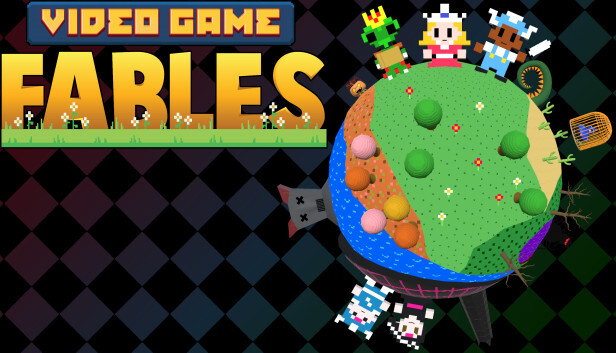
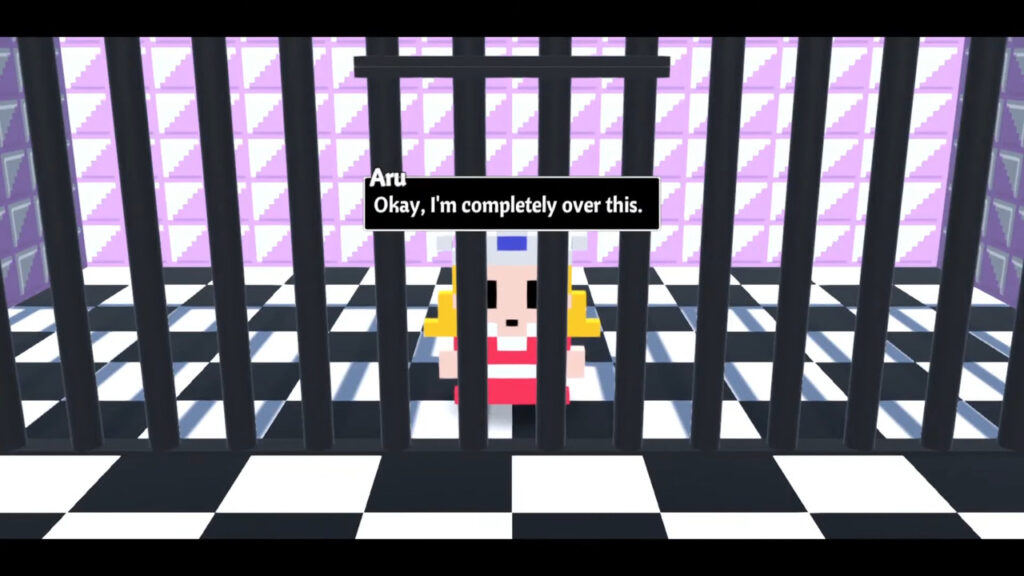
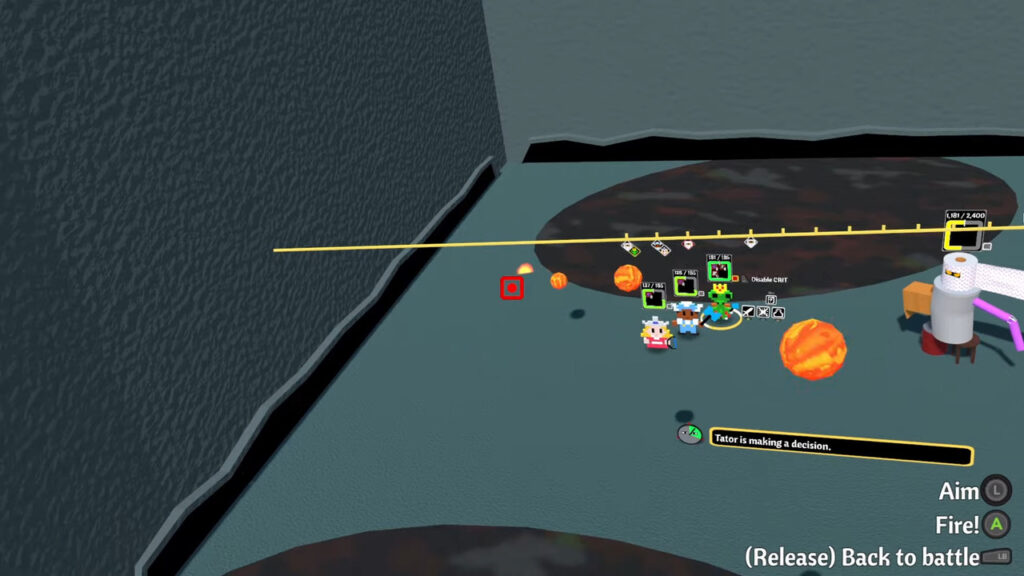
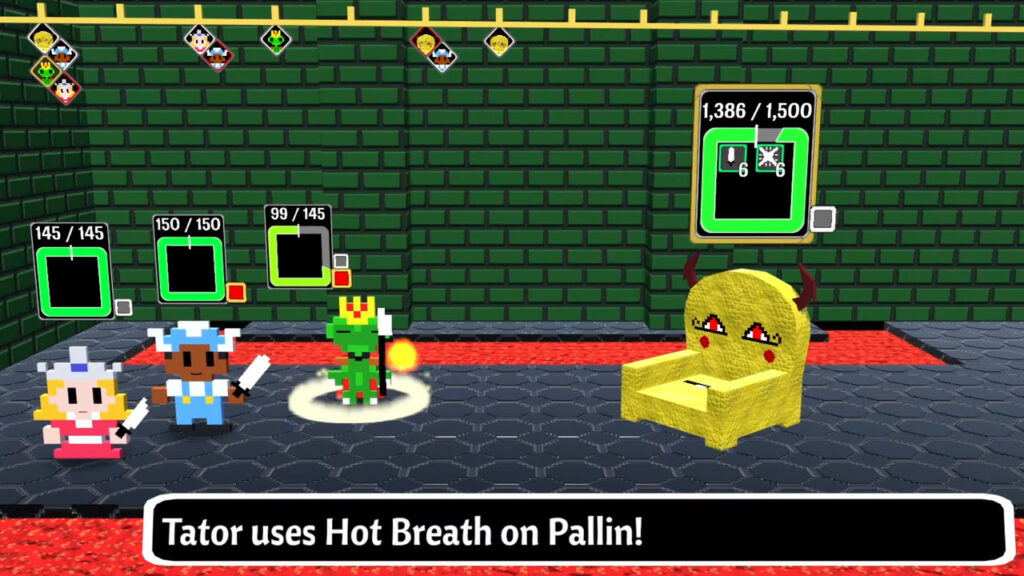
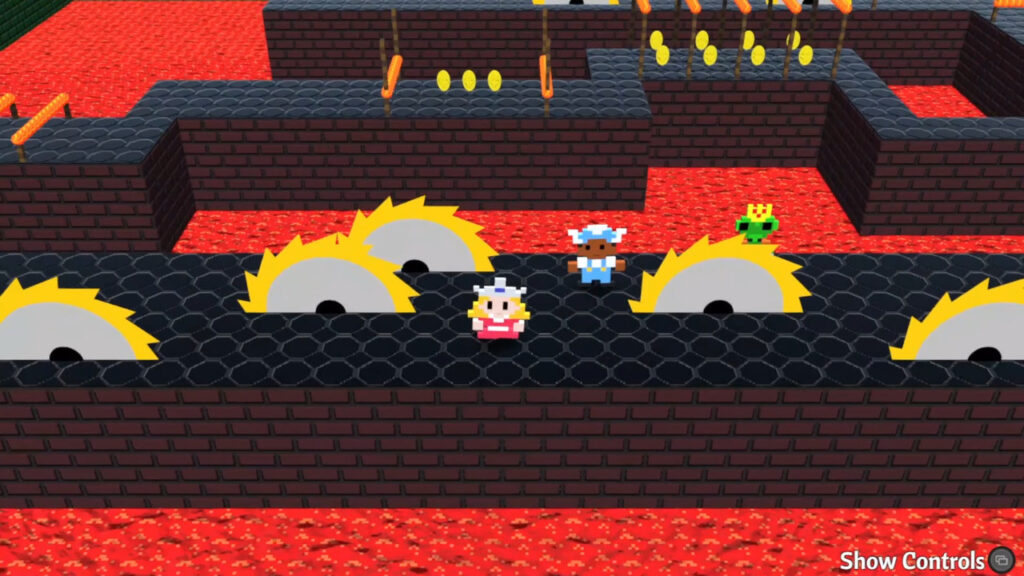




No Comments